With the massive influx of messaging apps, parents can often be unsure about how to keep their children safe. Any stranger can use these apps to send inappropriate content to your kid. The content regulation policies aren’t that strict on any messaging apps, and private messages are usually encrypted. Even if you talk about established messengers like WhatsApp, many parents ask, “Is WhatsApp safe for kids?” This question worries many people, and they wonder if their kid can get exposed to mature content or inappropriate language within this application. There are a ton of practical ways your child can use WhatsApp to communicate with their friends. Still, it is better to underscore the point that almost anyone can send texts to your children. So, you might need to be a bit proactive about their online security. Otherwise, they’ll soon lose their innocence.
So, in this article, we will share different perspectives to see whether it’s safe for kids to have WhatsApp and help you to cope with the potential risks when it comes to WhatsApp safety.
Why would someone use WhatsApp instead of texting?
As far as the security side of things is concerned, WhatsApp’s end-to-end encryption is top-tier. This aspect makes WhatsApp one of the most suitable platforms for businessmen and professionals. The fact that your texts can’t be cracked and they will be transferred to the targeted individuals with ease will give any professional peace of mind. However, when it comes to children, they like it because of its quirky stickers, themes, and simple layout.
WhatsApp is so much more than a simple texting application.
- Your child can use it to create group chats, arrange events, and share their day by posting stories. Moreover,
- It is pretty easy to share media (photos or videos) through this messaging application. Over three billion users are on WhatsApp.
- There is a good chance that your child’s friend circle is on this app as well.
For these reasons, someone will choose WhatsApp over other texting applications or SMS.
Are there any dangers in using WhatsApp?
Yes, there are some dangers. Though some people say it’s safe to use WhatsApp, there are tons of issues that might arise when you’re using WhatsApp. Even though it is pretty easy for adults to navigate such issues, the same might not be true for your child. So, let’s cover the issues you will have to be aware of when your teen is using WhatsApp.
Potential location sharing
The quick location sharing within WhatsApp Messenger makes it one of the best messaging apps out there. However, it can be frightening to know that someone can trick your child into sending their location.
Privacy issues
Kids don’t pay much attention to privacy, and all they want is quick attention from their friends. They don’t think twice about uploading an embarrassing picture or video. However, you need to realize that these photos and videos can be downloaded by their contacts and used against your kids later.
Texts from strangers
By default, any stranger or community member can send you a text. WhatsApp doesn’t regulate which type of texts are sent to another party, and only the sender and the receiver have access to the text.
Cyberbullying
Many people have a habit of creating new accounts and bullying their friends. This situation is no doubt bizarre, but the fact is that it happens. If your child is struggling in school, there is a chance that they might get targeted by bullies.
Scammers
Because of WhatsApp’s popularity, it has become a common ground for scammers. People from third-world countries target the elderly using WhatsApp for their social security number and other personal details.
No content regulation
Lastly, the biggest issue is that anyone using WhatsApp can send and receive media content to a third party. Even if you’ve not saved a number, they can send your child an inappropriate video or a picture.
Is WhatsApp a safe app for kids to have?
It is safe for kids to have WhatsApp. However, before we finalize one answer, let’s first consider the age of your kids.
For preteens
If you’re dealing with pre-teens, then there is no need for them to be included in this application.
- They can easily get targeted by predators, and there is no guarantee that they will heed your advice about online safety.
- Kids can be pretty curious, and they believe anyone they meet on the internet.
For this reason, you probably may remove WhatsApp from your child’s device.
For preteens parents
Many parents who say that they help their kids learn by letting them use WhatsApp and other social media platforms. However, no matter how “woke” of a parent you are, I am sure that you want to protect your child from pedophiles and predators.
- No child should have to deal with a predator to learn anything about the real world.
- Instead, the responsibility falls upon you as a parent to keep your child away from such dangers.
- Moreover, you need to also invest a lot of time in letting your kid understand online dangers. Otherwise, your kid will soon become a victim of the issues I have listed above.
For teens
On the other hand, if you’re dealing with teenagers, you can potentially let them use WhatsApp.
- Kids can get pretty productive when using these messaging apps to coordinate their projects.
- Moreover, WhatsApp will make it easier for your child to maintain their social circle. They won’t stand out for having strict parents, and it will be easier for them to make new friends.
For teens parents
However, that still doesn’t mean that you should just let them have WhatsApp.
- Instead, sit them down and have a serious talk about the potential dangers your child might face with WhatsApp. Even after talking with your kid, you can’t rest easy.
- Also, You should check their WhatsApp activity from time to time. Moreover, you should focus on being more open with your child about their time on social apps.
That way, if they encounter something weird within the application, they will be more keen to let you know. Lastly, I’d also suggest that you look into some parental control tools or monitoring apps. These apps will alert you right away when a scammer or a pedophile tries to connect with your.
Whether WhatsApp is safe or not largely depends on how your kids use it. But before they use Whatsapp, it’s necessary for parents to have a conversation with them. You need to discuss with them how they should use WhatsApp. If necessary, you may start to monitor their WhatsApp usage.
How to track and detect a scammer on your Kid’s WhatsApp?
When it comes to detecting a scammer on your kid’s WhatsApp, your only option is to rely on parental control tools like FlashGet Kids. There aren’t any parental control features within WhatsApp that will let you track their notifications or texts. So, when you allow your teenagers to be on WhatsApp, be sure to also use apps like FlashGet Kids. Here is how you can track and detect a scammer on your kid’s WhatsApp.
Download and install the FlashGet Kids parental control app on your phone.
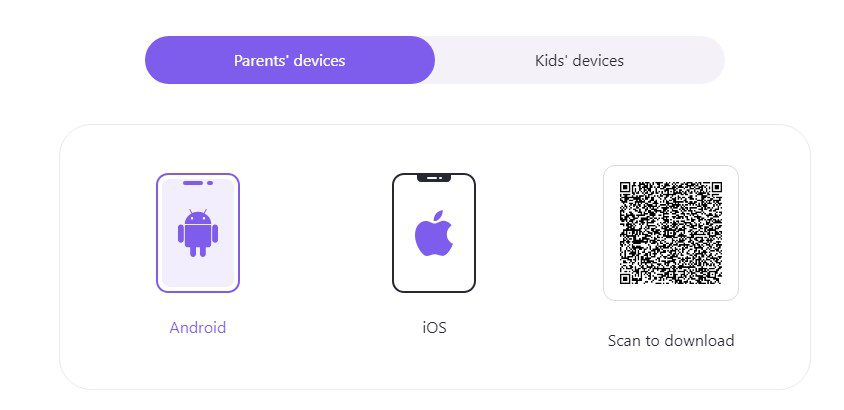


Launch this app and create your parent account.
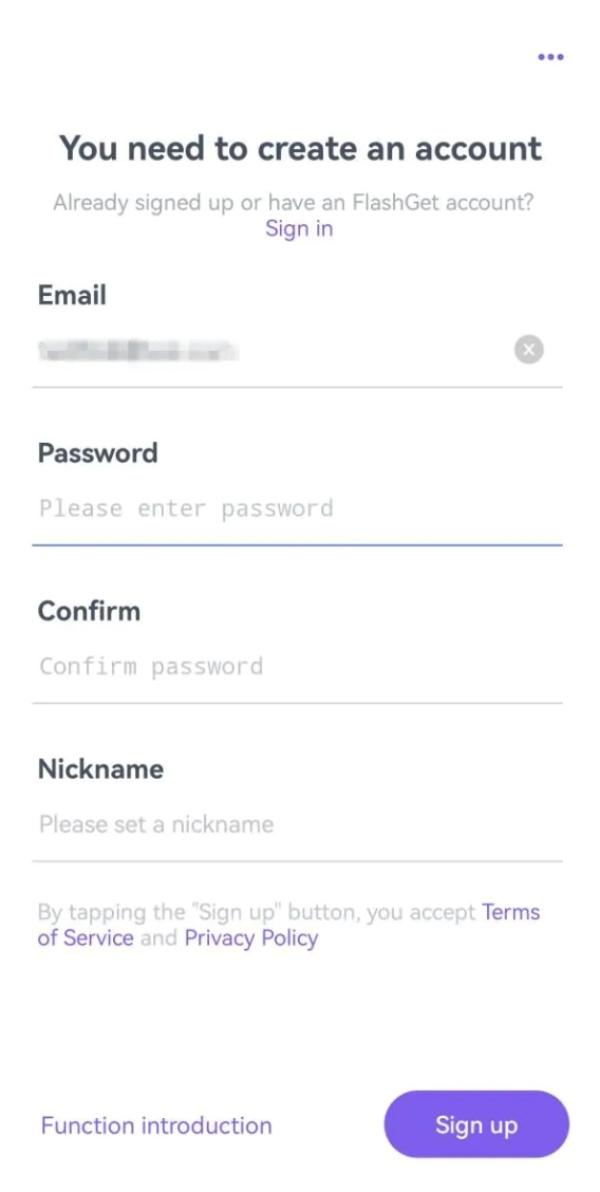


Use the browser on your kid’s Android to install the kid’s version of FlashGet Kids.
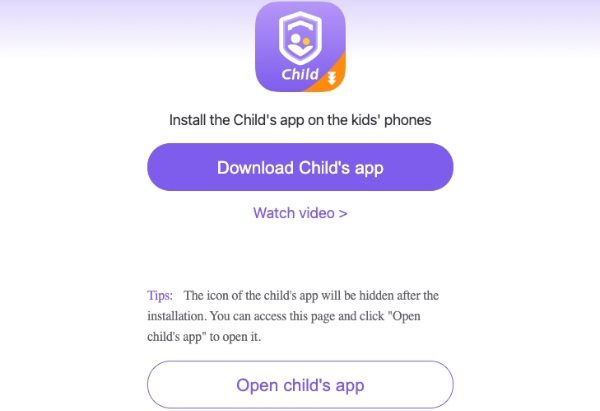


Pair the kid’s application with the parent’s application.
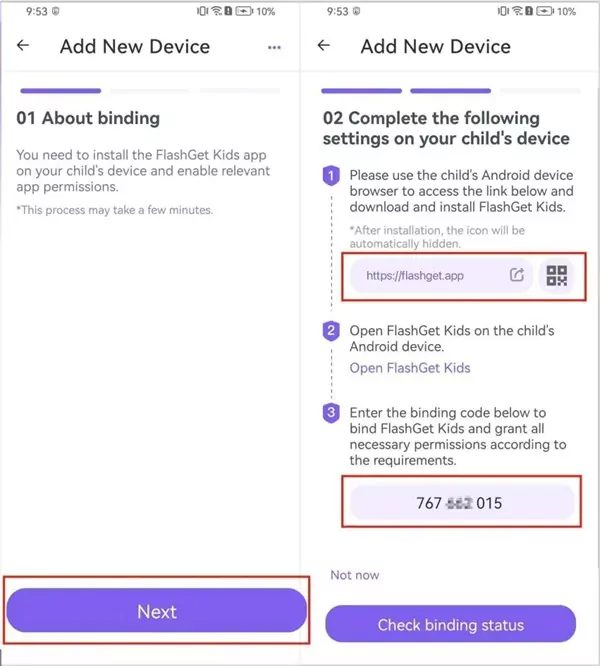


Go to the notice section on the parent’s application.



Click on notifications.
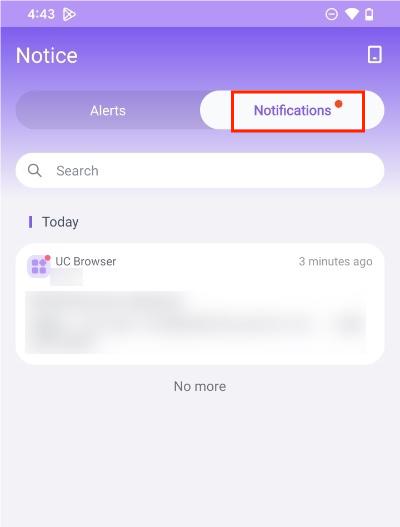


Now, whenever your child gets a notification on their device, you can check it through the parental control application. The good thing about WhatsApp is that new numbers always pop up in the notifications, as the users can’t silence a number that has not been added to their contacts. So, whenever a scammer tries to approach your child, you can intervene and remove the scammer after checking the notifications through the parental control app.
How to remove a scammer from WhatsApp?
It is not that complicated to remove a scammer from WhatsApp. Even if you are technically challenged, getting rid of scammers on this application will barely take one or two minutes. The difficult part is detecting the scammer, and after that, you can use your child’s phone to block and remove the scammer from their WhatsApp. Here is a step-by-step guide to aid you further in removing a scammer.
- Launch WhatsApp on your child’s phone.
- Go to the scammer’s phone number.
- Click on the three dots on the top right.
- Choose the block option.
- Tick the report box from the popup.
- Confirm your selection.
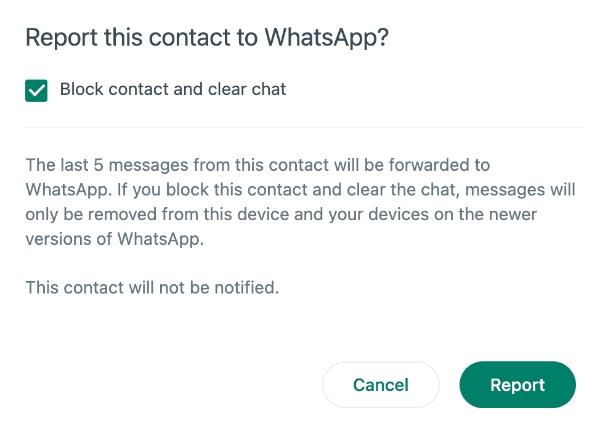


At this point, the scammer will be reported and blocked from your child’s phone. They will no longer be able to text or call your kid while using that number. On top of that, reported profiles are also reviewed by WhatsApp. You can rest easy knowing that WhatsApp will eventually terminate the scammer’s account after reviewing their latest activity. Once again, the hard part is detecting the scammers. So, consider installing tools like FlashGet Kids to detect your kid’s every move.
FAQs
What happens if your WhatsApp account is hacked?
When your WhatsApp account gets hacked, the hacker can impersonate you and contact your friends. Moreover, if they also hack your email, they can go through your messages and content backup.
Can WhatsApp get traced?
The WhatsApp messages can’t be traced, and they are end-to-end encrypted. Unless someone has installed a spy app on your phone, no one will be able to track your text message.
Can police recover deleted messages?
Theoretically, yes, police can use recovery tools to extract hidden and deleted messages from your phone. However, it all comes down to how long ago the messages were deleted on your device.

